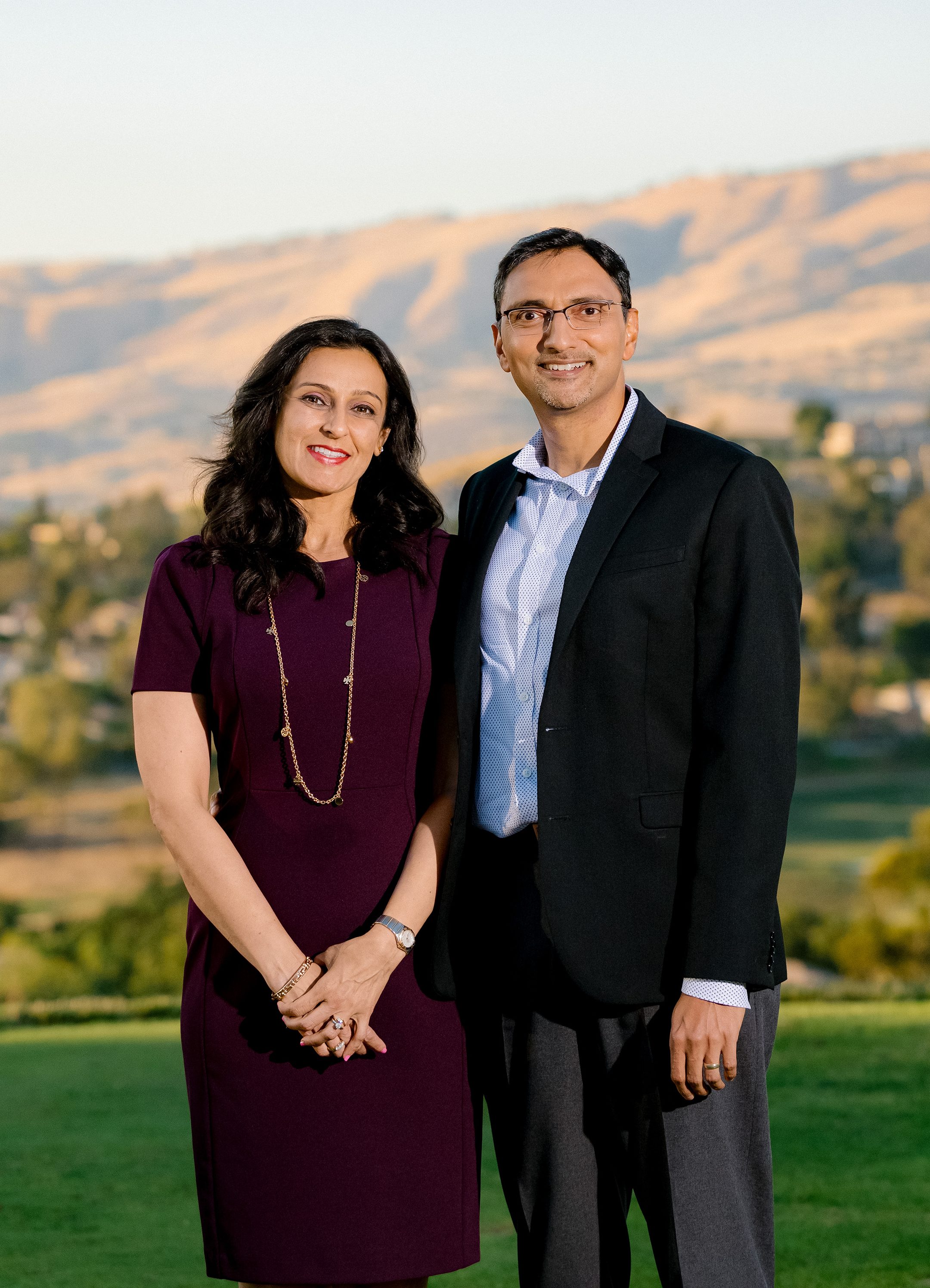Amit Sinha and Deepali Perti Sinha
San Jose, California

“Because of my time at MIT, I had the training and opportunity to work with some of the smartest people throughout my career,” says Amit Sinha, chief technical officer and president of research and development, operations, and customer service at Zscaler, a cloud-based information security company. “Plus, my friends and colleagues think I’m smarter than I actually am!” Joking aside, he and his spouse, Deepali, so valued their time in Cambridge that they decided to express their appreciation by establishing a presidential fellowship for international graduate students in the Department of Electrical Engineering and Computer Science.
Change driven by people. “MIT is a magnet for smart, passionate, and driven folks who refuse to accept the status quo,” Amit says. “MIT gives them an opportunity to interact with others who also have an insatiable curiosity and a relentless drive to solve hard problems.” The two know that cost can be a prohibitive factor, especially for international students. “We hope our graduate fellowship can remove the financial hurdle for deserving international students and allow them to realize their dream of pursuing academics and research at MIT,” he says.
Paying it forward. Amit says that he would not have been able to attend MIT without the financial aid he received. “In the future, I’d love to see how these young engineers supported by our fellowship go out in the world and make a big difference,” he says. “Perhaps they will turn around and set up fellowships for subsequent generations.”
Help MIT build a better world. For more information, contact David Woodruff: 617.253.3990; daw@mit.edu. Or visit giving.mit.edu.
Keep Reading
Most Popular
Large language models can do jaw-dropping things. But nobody knows exactly why.
And that's a problem. Figuring it out is one of the biggest scientific puzzles of our time and a crucial step towards controlling more powerful future models.
The problem with plug-in hybrids? Their drivers.
Plug-in hybrids are often sold as a transition to EVs, but new data from Europe shows we’re still underestimating the emissions they produce.
Google DeepMind’s new generative model makes Super Mario–like games from scratch
Genie learns how to control games by watching hours and hours of video. It could help train next-gen robots too.
How scientists traced a mysterious covid case back to six toilets
When wastewater surveillance turns into a hunt for a single infected individual, the ethics get tricky.
Stay connected
Get the latest updates from
MIT Technology Review
Discover special offers, top stories, upcoming events, and more.